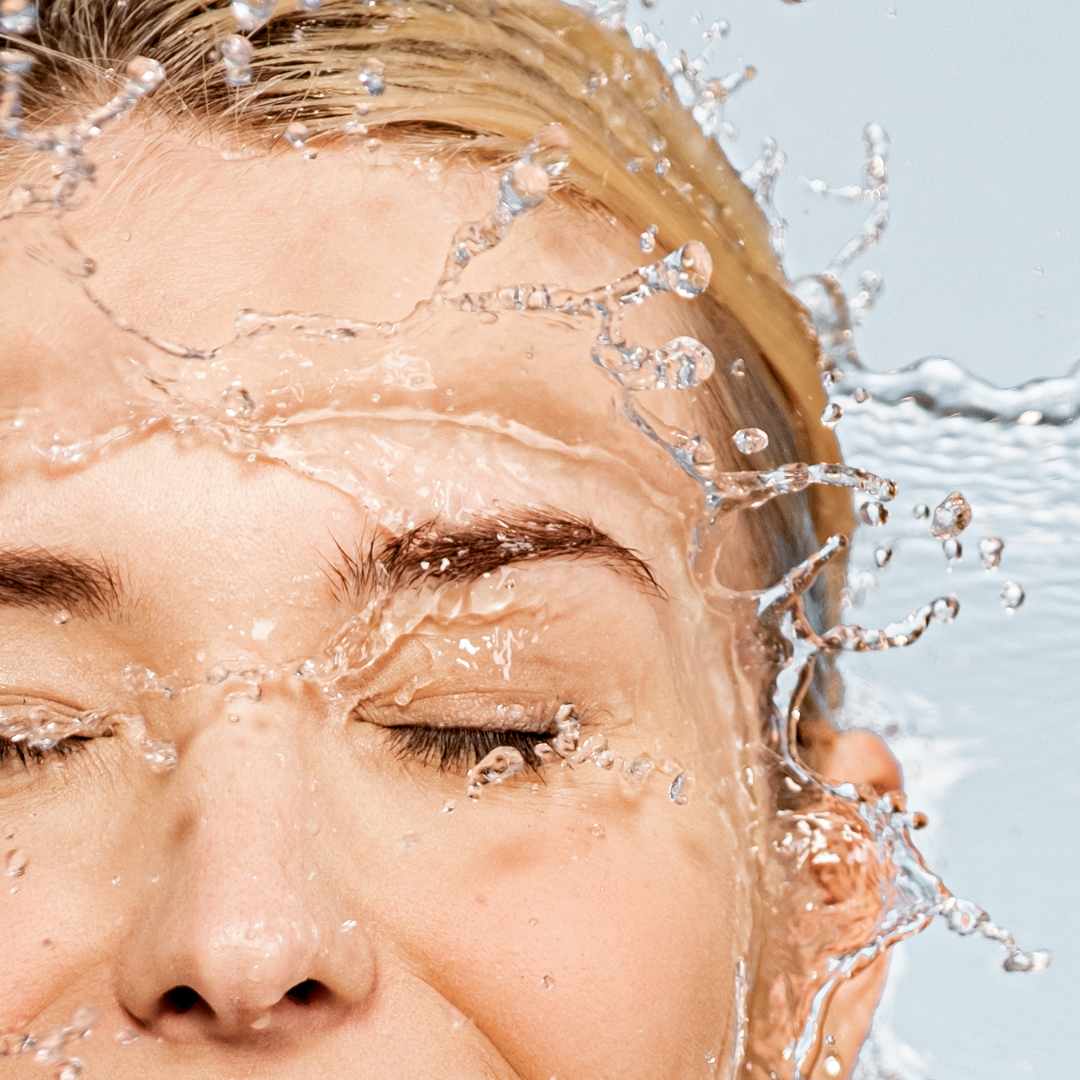
The Beginners Guide To Hydration
Share
Hydration and Your Body.
Our body is always trying to tell us something and hydrated skin can be a symptom of overall body dehydration.
Staying hydrated is essential for maintaining good health and well-being. Water is a vital component of our bodies and is involved in many important processes, such as regulating body temperature, aiding in digestion, and transporting nutrients and oxygen to our cells. Here are some of the reasons why it's important to keep hydrated:
-
Maintains bodily functions: Water helps to maintain the balance of bodily fluids, which is essential for the proper functioning of our organs and bodily systems. Dehydration can lead to fatigue, dizziness, and more.
-
Body temperature: Water helps to regulate body temperature by cooling the body through perspiration. When we sweat, water is released from our pores and evaporates, taking heat away from our skin and helping to keep us cool.
-
Physical performance: Staying hydrated can help to improve physical performance by reducing fatigue and increasing endurance. This is particularly important for athletes and people who engage in physical activity.
-
Digestion: Water is essential for digestion and helps to break down food in the stomach and intestines. It also helps to keep the digestive system functioning smoothly and can prevent constipation.
-
Skin Health: Drinking water can help to keep the skin hydrated and prevent dryness, which can lead to flakiness, itching, and other skin problems. It can also help to flush out toxins from the body and improve skin complexion.
-
Immune system: Staying hydrated can help to boost the immune system by flushing out toxins from the body and improving the function of the lymphatic system. This can help to reduce the risk of infections and other illnesses.

Hydration and skin.
Healthy skin is something we all want, and one of the key factors in achieving it is hydration. Skin hydration refers to the amount of water content in your skin. When your skin is well-hydrated, it can look and feel soft, smooth, and supple. But why is it so important to keep your skin hydrated?
Prevents Dryness and Discomfort
One of the primary benefits of skin hydration is that it helps to prevent dryness. Dry skin can be uncomfortable, itchy, and even painful, especially in cold or dry climates. Dehydrated skin can also become flaky, cracked, and rough to the touch. This can make it harder to apply makeup and can cause other skin products, such as serums or moisturisers, to become less effective.
Boosts Skin Elasticity
Another important benefit of skin hydration is that it helps to improve skin elasticity. Elasticity refers to your skin's ability to stretch and bounce back without becoming damaged. When your skin is well-hydrated, it can maintain its elasticity and reduce the risk of developing wrinkles and fine lines.
Reduces Signs of Aging
Keeping your skin hydrated can also help to reduce the appearance of aging. When your skin is dehydrated, it can look dull and tired. This can make wrinkles, fine lines, and age spots more noticeable. By keeping your skin hydrated, you can plump up the skin and reduce the appearance of these signs of aging.
Improves Skin Texture
Well-hydrated skin also tends to have a smoother texture than dehydrated skin. When your skin is properly hydrated, it can look and feel soft, smooth, and silky. This can make it easier to apply makeup and can help your skin look healthy and glowing.
Enhances Overall Skin Health
Finally, keeping your skin hydrated can help to enhance overall skin health. When your skin is well-hydrated, it can better protect itself against environmental stressors such as pollution, UV radiation, and bacteria. This can help to prevent skin problems such as acne, rosacea, and eczema, and can contribute to overall skin health.
Keeping Your Skin Hydrated.
-
Drink enough water: Drinking water is one of the simplest and most effective ways to hydrate your skin. Aim to drink at least 8-10 glasses of water a day.
-
Use a gentle cleanser: Avoid harsh soaps and cleansers that can strip your skin of its natural oils. Look for a gentle cleanser that will help remove dirt and impurities without drying out your skin.
-
Moisturise daily: Using a good moisturiser can help to hydrate and nourish your skin. Look for a moisturiser that is suitable for your skin type and contains ingredients like hyaluronic acid, glycerin, or ceramides that can help to lock in moisture.
-
Use a humidifier: If you live in a dry climate or spend a lot of time in air-conditioned or heated environments, consider using a humidifier. A humidifier can add moisture to the air, which can help to keep your skin hydrated.
-
Eat a healthy diet: A diet rich in fruits and vegetables can provide your skin with the nutrients it needs to stay healthy and hydrated. Foods like avocados, nuts, and fatty fish are also rich in healthy fats that can help to nourish your skin from the inside out.
-
Protect your skin from the sun: Exposure to the sun can cause damage to your skin and contribute to dryness. Always wear a broad-spectrum sunscreen with at least SPF 30 when you are outside.
In conclusion, keeping your skin hydrated is an important aspect of maintaining healthy, glowing skin. By preventing dryness, boosting elasticity, reducing signs of aging, improving texture, and enhancing overall skin health, skin hydration is essential for looking and feeling your best. So, make sure to drink plenty of water, use a gentle cleanser, moisturise regularly, and protect your skin from the sun to keep it hydrated and healthy.
As always thank you for your support
Tam & Gav x
